Japanese-compatible multimodal AI 'Claude 3' that can process images and text simultaneously with performance exceeding GPT-4 will be released

Anthropic, an AI startup founded by former OpenAI engineers, has announced Claude 3, a large-scale language model.
Introducing the next generation of Claude \ Anthropic
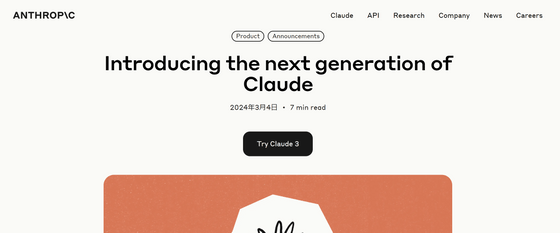
The previous model, 'Claude 2', supports Japanese and has a score higher than OpenAI's GPT-3.5 on ' Rakuda ', a benchmark that measures AI's Japanese language ability. The newly released Claude 3 also supports multiple languages and is said to have better performance than GPT-4.
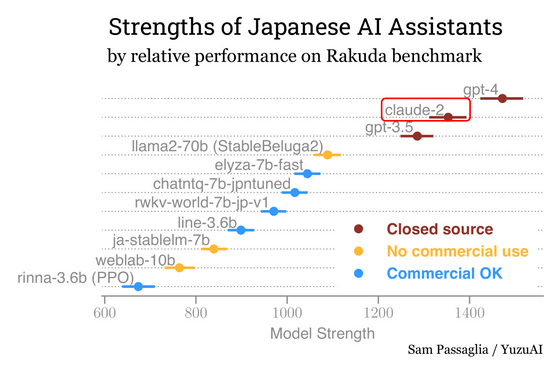
The Claude 3 model is divided into three variants: the inexpensive and cost-effective 'Haiku', the 'Sonnet' that balances cost and performance, and the expensive but high-performance 'Opus'.
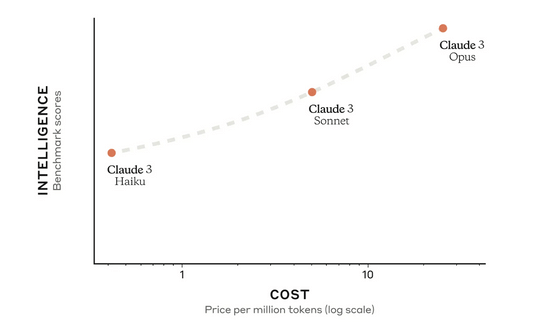
The results of comparing scores with competitors in various benchmarks are shown in the figure below. The top model, the Claude 3 Opus, scored the highest in all benchmarks.
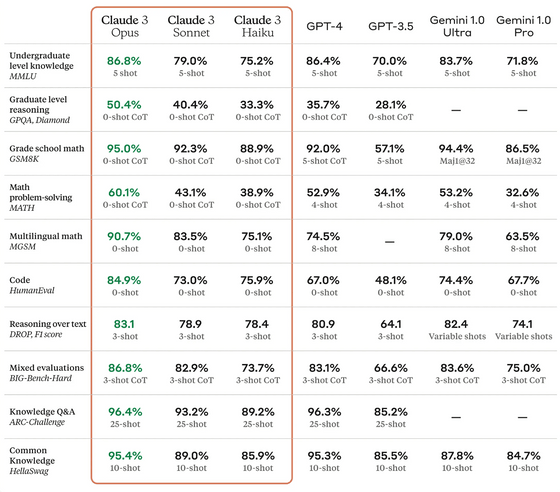
The benchmark results for vision functions such as photos, charts, graphs, and technical diagrams are shown below. The top model Claude 3 Opus outperforms GPT-4V in all benchmark results.
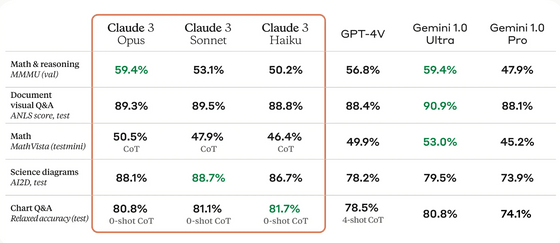
Claude 3 significantly improves the problem with the previous model of accidentally rejecting harmless prompts.
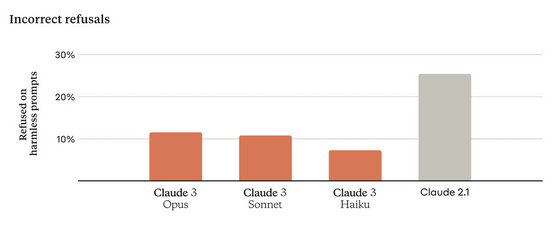
In addition, the probability of correctly answering ``complex and difficult questions'', which was a weakness of previous models, has increased significantly.
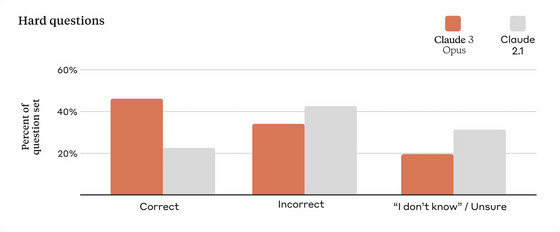
The Claude 3 model supports context lengths up to 200,000 tokens, and recall is important to efficiently process such long contexts. The top model Claude 3 Opus was able to achieve an almost perfect recall rate of over 99% accuracy.
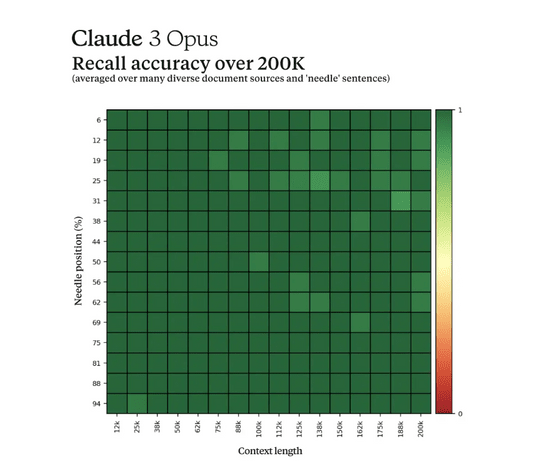
The Haiku model costs $0.25 (about 38 yen) for input and $1.25 (about 188 yen) for output per 1 million tokens. The Sonnet model has an input of 3 dollars (about 451 yen) and an output of 15 dollars (about 2260 yen). The Opus model has an input cost of $15 (about 2,260 yen) and an output of $75 (about 11,300 yen). In addition, in either model, it is possible to expand the context window to 1 million tokens depending on the use case.
Sonnet and Opus models are already generally available via the Claude API , and Haiku is expected to be generally available soon.
Related Posts:
in Software, Posted by log1d_ts







